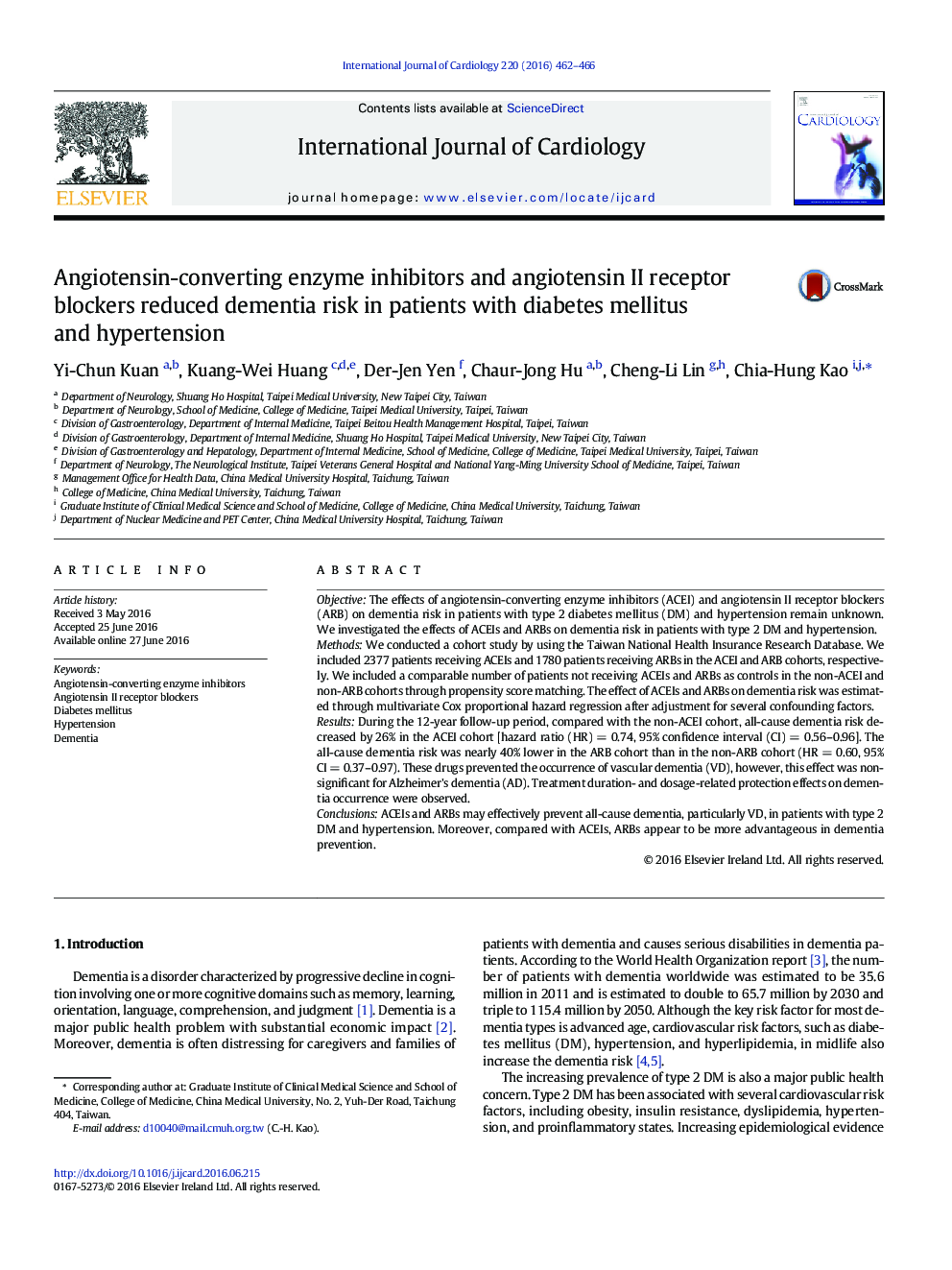| Article ID | Journal | Published Year | Pages | File Type |
|---|---|---|---|---|
| 5963543 | International Journal of Cardiology | 2016 | 5 Pages |
ObjectiveThe effects of angiotensin-converting enzyme inhibitors (ACEI) and angiotensin II receptor blockers (ARB) on dementia risk in patients with type 2 diabetes mellitus (DM) and hypertension remain unknown. We investigated the effects of ACEIs and ARBs on dementia risk in patients with type 2 DM and hypertension.MethodsWe conducted a cohort study by using the Taiwan National Health Insurance Research Database. We included 2377 patients receiving ACEIs and 1780 patients receiving ARBs in the ACEI and ARB cohorts, respectively. We included a comparable number of patients not receiving ACEIs and ARBs as controls in the non-ACEI and non-ARB cohorts through propensity score matching. The effect of ACEIs and ARBs on dementia risk was estimated through multivariate Cox proportional hazard regression after adjustment for several confounding factors.ResultsDuring the 12-year follow-up period, compared with the non-ACEI cohort, all-cause dementia risk decreased by 26% in the ACEI cohort [hazard ratio (HR)Â =Â 0.74, 95% confidence interval (CI)Â =Â 0.56-0.96]. The all-cause dementia risk was nearly 40% lower in the ARB cohort than in the non-ARB cohort (HRÂ =Â 0.60, 95% CIÂ =Â 0.37-0.97). These drugs prevented the occurrence of vascular dementia (VD), however, this effect was nonsignificant for Alzheimer's dementia (AD). Treatment duration- and dosage-related protection effects on dementia occurrence were observed.ConclusionsACEIs and ARBs may effectively prevent all-cause dementia, particularly VD, in patients with type 2 DM and hypertension. Moreover, compared with ACEIs, ARBs appear to be more advantageous in dementia prevention.
